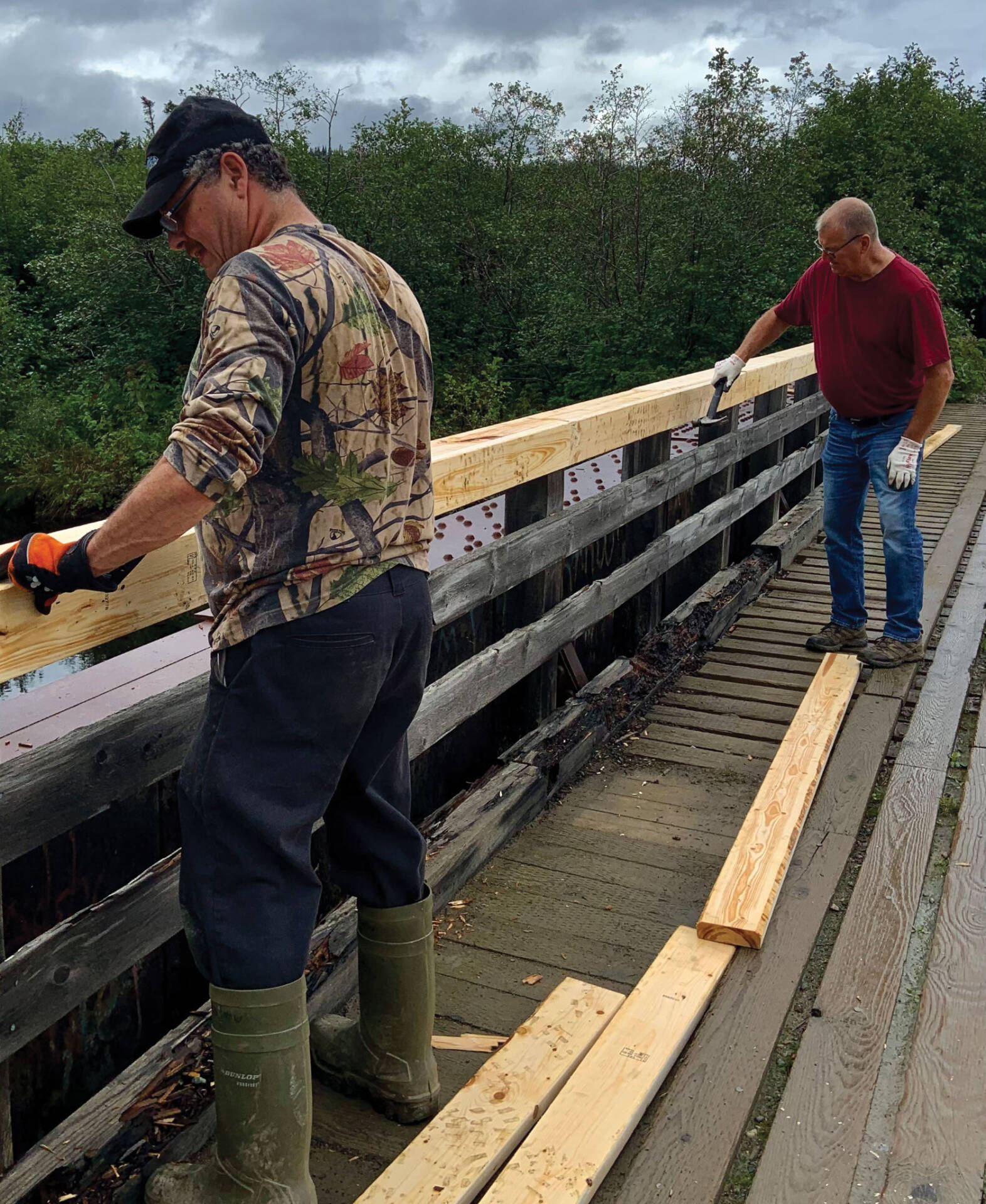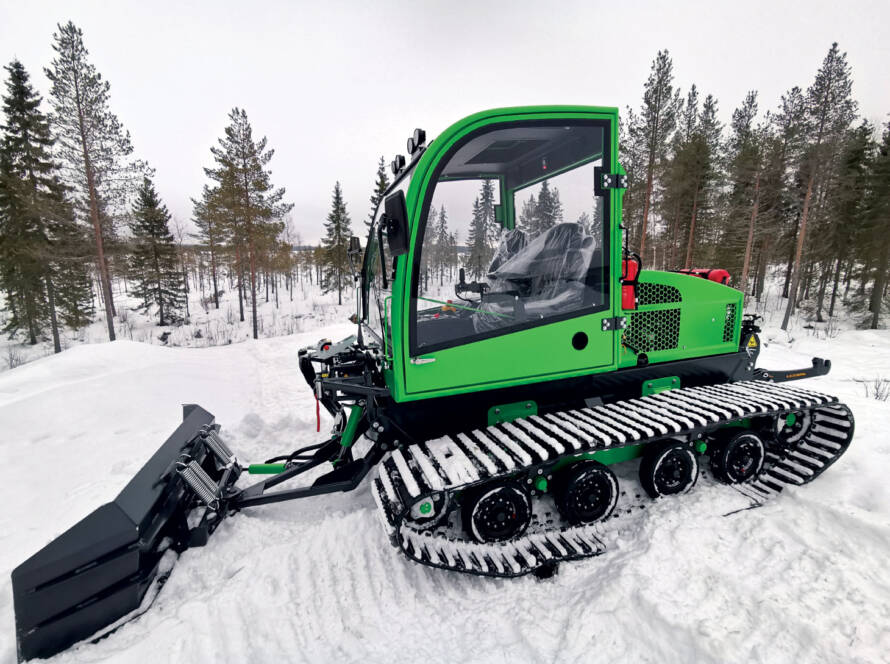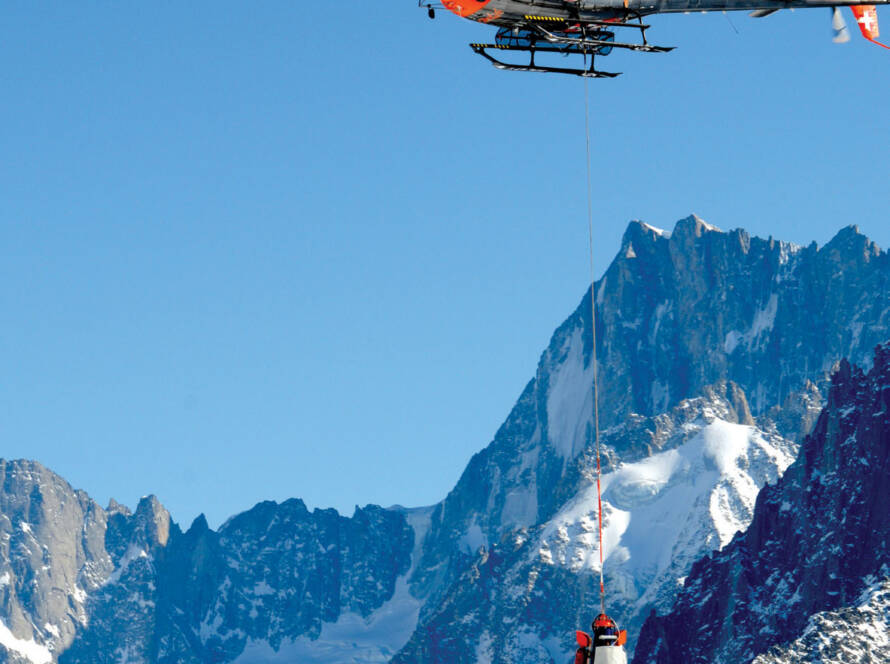Volunteers are the foundation of organized snowmobiling. Volunteers clear bush, stake trails, build bridges, groom trails and much, much more. So, it is crucial to the sport of snowmobiling that snowmobile clubs continue to bolster their volunteer base with new recruits.
“Many people do not realize that members of snowmobile clubs and associations are volunteering their time and not being paid for the enormous amount of work they put in,” said Jaret Smith, president, International Snowmobile Manufacturers Association.
Smith is also part of the Fergus Elora Belwood Snowmobile Club and currently sits on their board of directors. “As an industry, we are so grateful for everyone who contributes to ensure we have trails to ride on each winter,” Smith said.
Snowmobile clubs across North America rely on their core of dedicated and experienced volunteers, many of whom have been part of their clubs for decades. However, currently, clubs have a tough time engaging with the next generation of volunteers and retaining them for the long term. There is much the industry can learn from clubs that are successful in growing a membership base so that, as one age group begins to wind down, they can look to the next generation to take over.
Western Sno-Riders
Located in the Corner Brook region of western Newfoundland and Labrador, Canada, the Western Sno-Riders has been in existence for more than 30 years. The club has – on average – approximately 3,000 pass holders and is responsible for the maintenance of three warm up shelters and about 407 kilometers of trails. Last year, the club received the Canadian Council of Snowmobile Organizations Most Outstanding Club award and the International Club of the Year award, and was inducted into the International Snowmobile Hall of Fame.
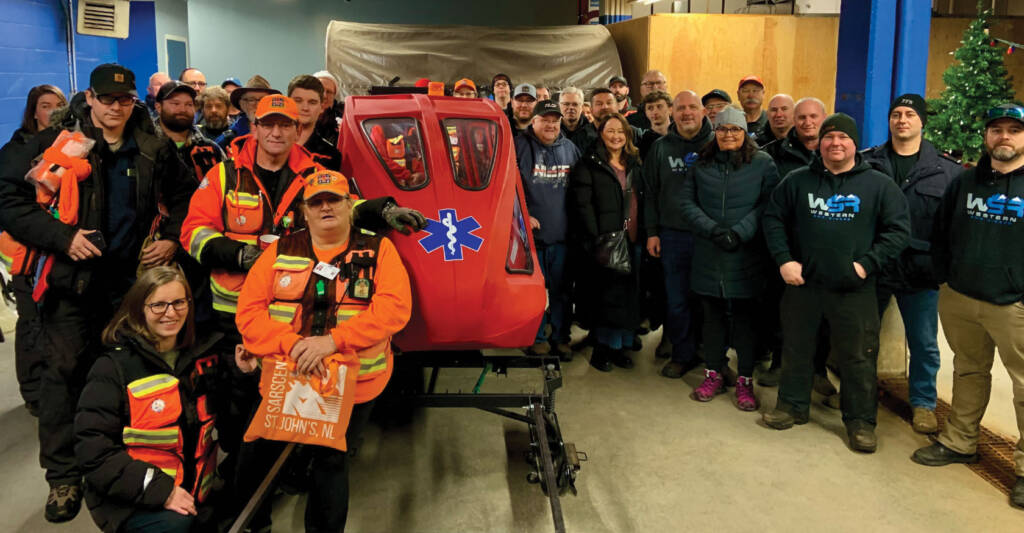
Western Sno-Riders is also well known in the province for its annual Race on The Rock event, which draws approximately 200 racers and more than 2,000 spectators for a weekend of uphill snowmobile drag races and snocross races.
“Race on the Rock is our club’s biggest fundraising event of the year, and its success is only made possible by the dozens of volunteers who help pull it off year after year,” said Western Sno-Riders president, Glenn Green.
“While recognition is not why they volunteer, our volunteers want to be respected and valued for their time. They want to feel appreciated for their contributions. They want their voice heard and to feel a part of the team.”
Glenn Green, Western Sno-Riders
Western Sno-Riders is always on the hunt for new recruits and volunteers who can bring new ideas, skill sets and knowledge, and help the club function more effectively. The club has found great success attracting these kinds of new members by using social media to promote the work of its volunteers, as well as recognize the people who contribute to the club.
“We find this approach brings them back for the next project, and they bring friends,” said Green. “While recognition is not why they volunteer, our volunteers want to be respected and valued for their time. They want to feel appreciated for their contributions. They want their voice heard and to feel a part of the team.”
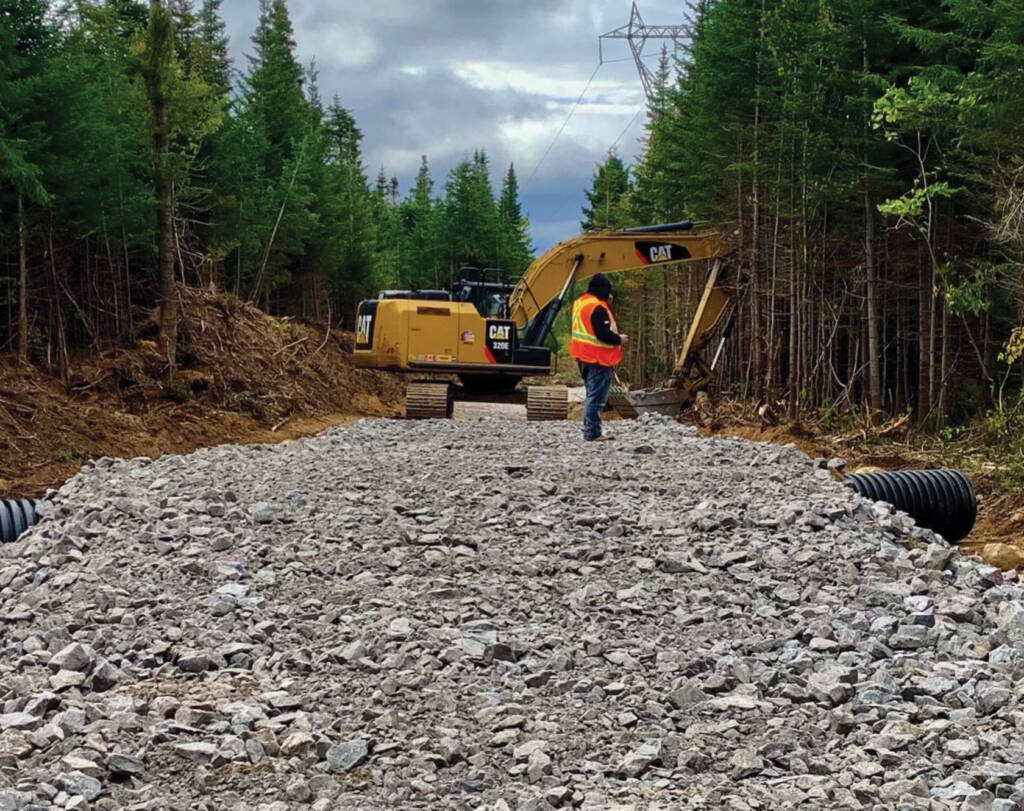
While Western Sno-Riders has found great success in recruiting volunteers to help host events, cut trails and do repairs, it has been more challenging to find people who are willing to take on the responsibility for the day-to-day requirements of running a snowmobile club. So, recognizing that the average age of the club’s board of directors was 55 to 60 years old – and getting older – Western Sno-Riders implemented a junior director program to mentor younger volunteers interested in taking on more responsibility within the club.
“In the three years since it was established, this program has resulted in four junior directors on our board who are learning the operations of the club and will, no doubt, be future leaders of the organization,” said Green. “We are always looking for people to be engaged and willing to share their thoughts and ideas with the group. We want them to present new ways of doing things and not get stuck in the rut of ‘this is how we’ve always done it.’”
Cambria Moonlighters of Wisconsin
Known originally in the 1960s as the Harmony Bar Moonlighters, the Cambria Moonlighters Snowmobile Club (a.k.a. The Moonlighters, Inc.) is a very active snowmobile club operating out of Cambria in Columbia County, Wis. The Moonlighters were the first club in the state to be awarded registration money to develop trails on private land and, after more than 60 years, continues to have a strong, dedicated and active membership.
Like many clubs, however, the Moonlighters face challenges in recruiting new members and volunteers, particularly when it comes to reaching younger members who may have different interests, time constraints or financial constraints than older members.
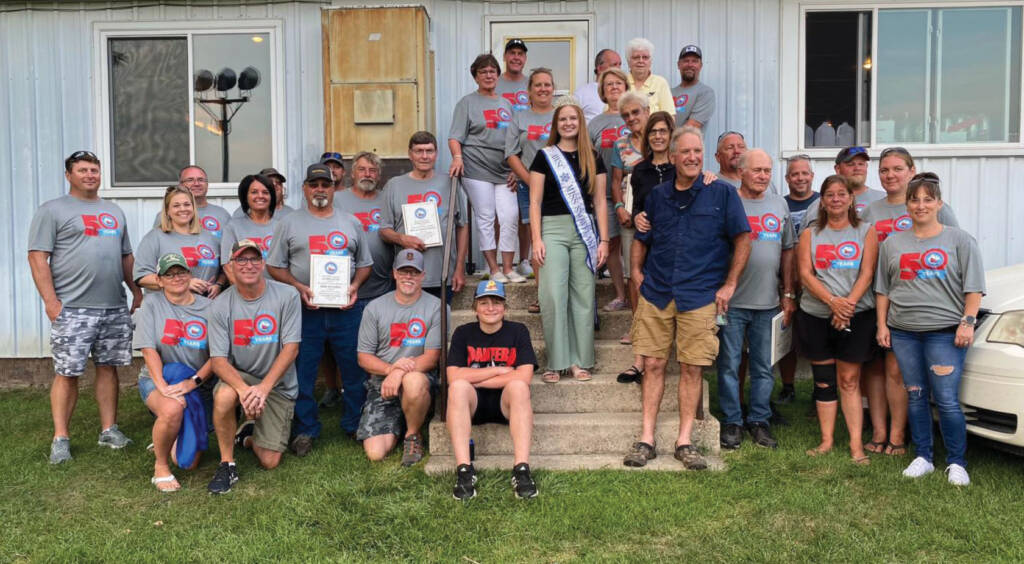
“This isn’t a new issue for us, but rather a growing challenge as societal trends evolve,” said the Moonlighters secretary, Lauren Levey. “We’ve noticed that, while our core group remains dedicated, attracting fresh faces requires more targeted outreach and engagement strategies than it once did, so we’re continually adapting our approach to ensure we remain a successful organization.”
Events and social gatherings are central to snowmobiling culture, and rely on volunteers for planning and execution. This is why the Moonlighters encourages younger members to take up leadership positions in the organization, and its vice president, treasurer and secretary are all in their early 30s or younger.
What’s more, the club always leaves the door open to young members and new ideas, something that the club attributes to its success over the years. After all, the organization recognizes that it would not have things like a club email address, online memberships, its monthly “Moonlighters Memo” newsletter, club trips, a club-hosted safety class and many other initiatives, if it were not for new members.
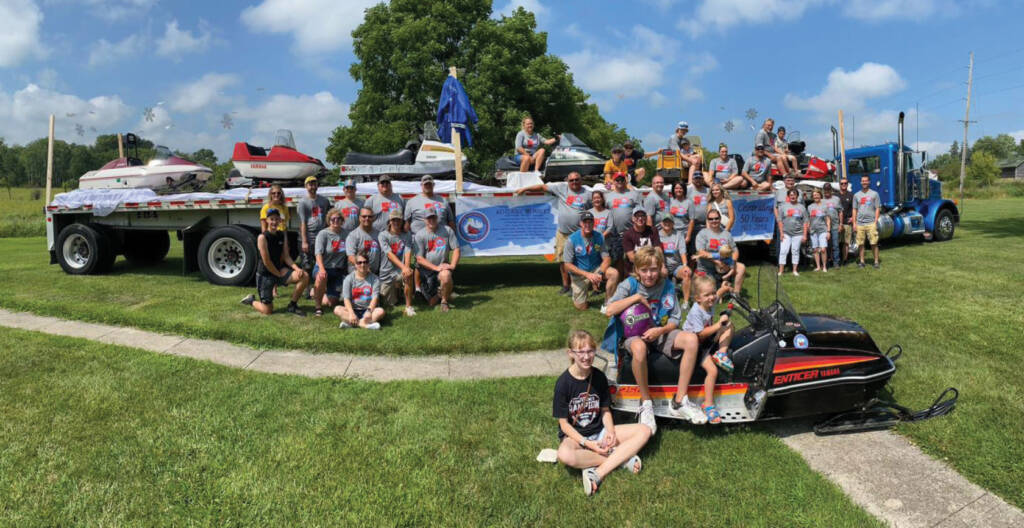
“We’ve got the perfect mix of experience and wisdom and youthful energy,” said Levey. “Each member of the club brings a unique set of skills and, when we’re able to leverage each member’s strengths, we can support each other, work together and accomplish many things.”
Throughout the year, the Moonlighters host a variety of events and opportunities for its members to get involved depending on where their interests lie. In addition to club staples such as meat raffles, poker runs and cash raffles, the Moonlighters also support local initiatives, such as the Youth Ice Fishery, the local Manchester Rod & Gun Club’s annual rodeo and the Cambria Conservation Club’s Memorial Day Chicken BBQ.
“I think that the important part of keeping younger volunteers motivated and engaged is finding what they are good at or enjoy doing and running with it,” said Levey. “Not everyone is going to want to install trails, plan events, write minutes or engage on social media. The Moonlighters, Inc. has remained successful because we rely on each other’s strengths and we are all in it for the same reasons: to have safe, responsible and enjoyable snowmobiling.”
The trail ahead
Looking ahead, it is critical that the sport of snowmobiling finds new ways to empower the next generation of volunteers. New membership means innovation, enthusiasm and fresh energy, and there is an immense opportunity for the next generation of volunteers to leave their mark on organized snowmobiling.
“Snowmobilers are passionate, committed and care about their trail system, environment and community, and I am confident that snowmobile clubs will learn best practices from experienced club members and adapt to attract the next generation of members for the future of our sport,” said Smith. “I encourage anyone who loves snowmobiling to reach out to their local club to see how they can help.”
